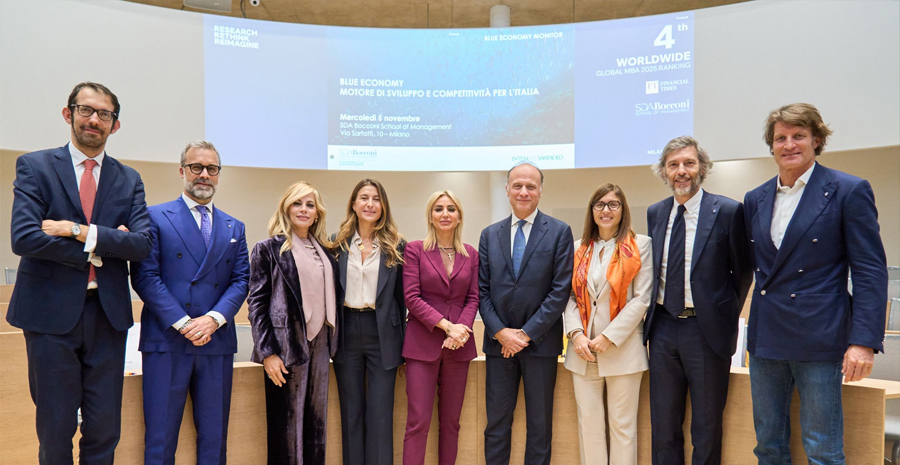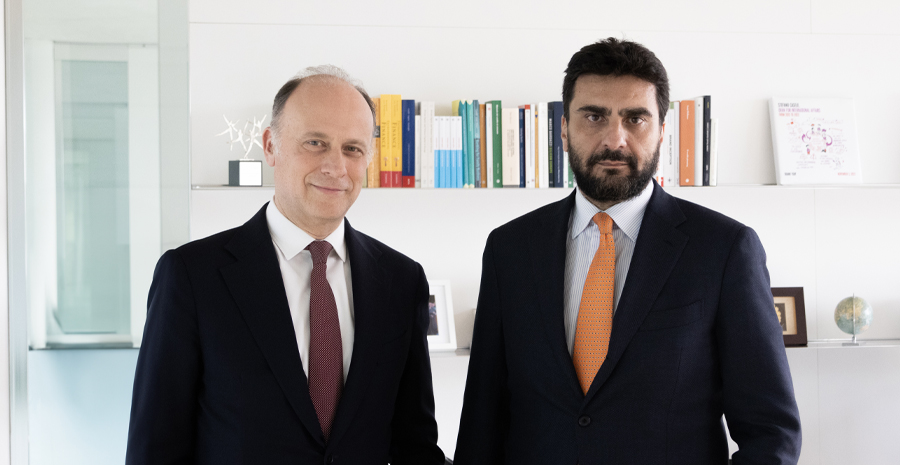
- Start date
- Duration
- Format
- Language
- 2 Dic 2025
- 4,5 days
- Class
- Italian
“When the facts change, I change my mind.” With this quote from Keynes, John Berrigan, Director-General for Financial Services at the European Commission, opened his remarks at the conference Sustainability Disclosure: Red Tape or Strategic Tool for the Future of Business?, introducing the recent relaxation of sustainability reporting requirements under the Omnibus proposal. He explained that the changes respond to various concerns raised by companies and aim to strike the right balance between sustainable development and development, full stop. “The reduction in the number of companies covered isn’t as dramatic as it may seem,” he said, “especially because many will continue to report voluntarily. This is a process of learning by doing, and sustainability reporting is here to stay.”
“Climate- and nature-related risks must be taken seriously, as scientists urge us to do,” said Sylvie Goulard, Professor of Practice in Global Affairs at SDA Bocconi School of Management. “To tackle these risks, we need high-quality data that ensure the transparency investors require to know exactly where their money is going. The rules may be simplified, but we must not lose sight of the strategic value of sustainability.” Her remarks summed up the debate that unfolded during the event organized by SDA Bocconi School of Management and the Institute for European Policymaking at Bocconi University.
Stefano Caselli, Dean of SDA Bocconi School of Management, emphasized that in a world awash with liquidity, investors have a responsibility to shape our future by deciding which activities to support. In a world of widening inequalities, creating value by acting on our values is the best way we have to help fill the gap.
In her opening address, Mary Schapiro, former Chair of the SEC and of the Task Force on Climate-related Financial Disclosures, reviewed the evolution of sustainability reporting standards over the past 15 years, leading up to the Omnibus proposal.
Sabine Mauderer, Chair of the Central Banks and Supervisors Network for Greening the Financial System (NGFS) and Vice President of the Deutsche Bundesbank, stressed the high stakes involved, not just for the financial sector but for the resilience of the entire economy. Some estimates suggest that failure to act on climate could cost up to 15% of global GDP by 2050, and that even a three-year delay in implementing policies could result in a 1% GDP loss by 2030. Comparable data and shared standards are essential for making critical decisions.
A heartfelt defense of the Corporate Sustainability Reporting Directive (CSRD)—the EU directive on sustainability disclosure adopted in 2022 and now scaled back by the Omnibus proposal—came from Pascal Durand, former Member of the European Parliament and rapporteur of the CSRD. Durand pointed out that the directive was merely the latest milestone in a process that began at least as far back as 2006, when the Stern Review raised global awareness of the cost of inaction on climate change.
Chiara Del Prete, Chair of the EFRAG Sustainability Reporting Technical Expert Group—which advises the European Commission on this topic—highlighted that at least 650 companies have already published their sustainability reports using the CSRD’s frameworks. The analysis of these reports reveals several strengths, including consistency in definitions, structure, and metrics, but also areas for improvement. These include difficulties in assessing double materiality, the risk of excessive data obscuring the overall picture, and the need to ease the reporting burden on companies, for example by reducing the volume of data required.
After two years of experience, some adjustments to the CSRD may be helpful, but let’s be careful not to throw the baby out with the bathwater.
The keynote speeches were followed by a series of panel discussions featuring: Valentina Bosetti, Ariela Caglio, David Craig, Taylor Francis, Hirotaka Hideshima, Andrea Illy, Alessia Mosca, Stefano Pogutz, Veronika Pountcheva, Lucia Silva, Martin Stuchtey, David Vaillant, Jean-Roch Varon, and Pablo Zalba Bidegain.



The program equips you with tools to identify your team's strengths and challenges, adapting your leadership style to enhance team effectiveness.

